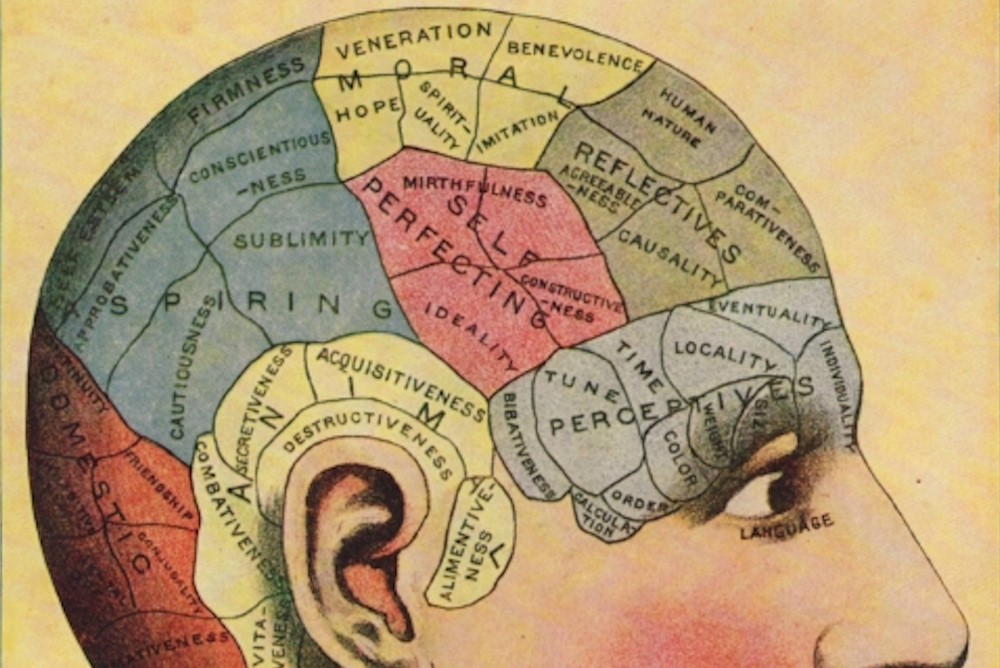Emotivism and Error Theory

This is likely the first post in a longer series of my writings on metaethics. In this first post, I will summarize the differences between cognitivism and non-cognitivism, as well as introduce A.J. Ayer’s Emotivist Theory and J.L. Mackie’s Error Theory. Finally, I will offer where I disagree with Mackie and why I find Ayer’s emotivism appealing.
- Introduction
- The Great Divide: Non-Cognitivism vs. Cognitivism
- Ayer’s Emotivism
- Mackie’s Error Theory
- What Do I Make of All of This?
Introduction
Last month, I read Alexander Miller’s An Introduction to Contemporary Metaethics. It was an extremely confusing read (an introduction in name only). I didn’t feel like I had the necessary prerequisites to fully appreciate the content, but I’m glad I didn’t give up.
After reading this book, I’ve realized how big the field is and how many philosophical knowledge gaps I have. I used to feel pretty confident in my philosophical abilities. I thought I had a good grasp of ethics with an especially strong understanding of the strengths and weaknesses of utilitarianism. This undue, heightened sense of competence in philosophy may have arisen from interacting almost exclusively with utilitarians over the past year. Over the past few months, I’ve taken a step back from ethics (and effective altruism) and have begun exploring new fields. No longer hindered by the pressure to maximize utility, I found time to do other fun things like reading a metaethics textbook!
The Great Divide: Non-Cognitivism vs. Cognitivism
Ethics is the study of what is morally right and wrong. Ethics is concerned with questions like ‘should I give to famine relief’ or ‘should I convince my brother to murder people.’ Metaethics, on the other hand, is the study of what is morality and moral language. Metaethics is concerned with questions like ‘is there objective morality,’ ‘do moral judgements express solely emotions,’ or ‘what are the origin of moral facts.’
I was introduced to metaethics through a discussion of moral realism and anti-realism (I rolled my eyes when I first heard these terms but now I foolishly use them in everyday conversation, oops). Moral realism is the theory that there exist objective moral values, and moral anti-realism is the theory that there do not exist objective moral facts. While I initially thought that the primary disagreement in metaethics was between these two theories, Miller, the author of An Introduction to Contemporary Metaethics, think that the primary divide in metaethics is between the non-cognitivists and the cognitivists.
Cognitivists believe that moral judgements (e.g. ‘murder is wrong’) express a truth-apt belief. A truth-apt belief is a belief that is apt to be assessed in terms of truth and falsity. Non-cognitivists believes that moral judgements express non-cognitive states such as emotions, desires, passions, or sentiments. These non-cognitive states are not truth-apt.
Consider the moral judgement ‘you acted wrongly in murdering that person.’ The cognitivist would claim that the moral judgement is a truth-apt statement—it is either true or false. The non-cognitivist would argue that the judgement is not an expression of a belief; rather, the judgement is an expression of some non-cognitive state like emotion. They would argue that the judgement you acted wrongly in murdering that person’ is equivalent to exclaiming ‘boooo, murder sucks!’ or blurting ‘you killed that person!’ in a tone of intense horror.
Within the cognitivists, there is further disagreement. The strong cognitivists believe that moral judgements
- are truth-apt
- can be rendered true through cognitively accessing the facts and careful reasoning
Weak cognitivists accept 1 but reject 2.
So, if we reconsider the moral judgement ‘you acted wrongly in murdering that person,’ both the strong and weak cognitivist would agree that the judgement is truth-apt, but they would disagree on whether we can conclude that the judgement was true or false. The strong cognitivist would say that we can access certain sets of information to come to a conclusion of whether the claim is true. The weak cognitivist would say that we can’t necessarily access a set of knowledge that would render the judgement true.
Ayer’s Emotivism
Ayer denies that moral judgements express truth-apt beliefs; he is a non-cognitivist. Instead, he puts forward emotivism, which holds that moral judgements express emotional attitudes. Emotional attitudes are notably not truth-apt because emotions do not purport to represent how the world is. Miller offers the following example.
Compare your belief that there are children in the street, which purports to represent how the world is, with your horror at the fact that the children are torturing a cat. The belief has a representative function: it purports to represent how the world is, and it is true if and only if the world actually is as it represents it. The emotion of horror, on the other hand, has no such representative function: it is not the sort of thing that can even be assessed for truth or falsity.
According to Ayer, the moral judgement ‘murder is wrong’ has no truth value. However, what happens if we consider the inverse statement ‘murder is not wrong?’ Surely one statement must be false and the other true. Ayer’s response is that moral disagreement is not about having contradictory beliefs (truth-apt); rather, it is about having clashing feelings (not truth-apt).
Before moving forward, I want to flag a common misconception. Consider the following claim: “‘killing babies is wrong’ is really just me saying ‘I disapprove of murder.’” Although this appears to be an emotivist account, it is not. Emotivism rejects moral judgements are reports or propositions at all. When I judge that killing babies is wrong, I am not saying anything. According to Miller,
I am no more saying or reporting that I disapprove of murder than I say or report that I am in pain when I cry ‘%$!’ after standing on a tack. My utterance of ‘%$!’ is not a report, and so a fortiori not a report that I am in pain: it is an expression of pain, not a saying about it.
Another way to think about this distinction between saying something and expressing something is to consider boredom. One way to express my boredom is to utter the words ‘I am bored.’ But there are many more ways to express my boredom without uttering the words explicitly, including tone, stating unrelated and off-topic comments, facial expressions, and body language. Emotivists see moral judgements as expressions of this more implicit kind.
Thus, the moral judgement ‘murder is wrong’ is not a report or proposition of the form ‘I disapprove of murder.’ Instead, to the emotivist, the moral judgement ‘murder is wrong’ is simply an expression of disapproval.
Mackie’s Error Theory
Mackie’s anti-realist thoery differs from Ayer in that Mackie assumes weak cognitivism. Mackie accepts that moral judgements express truth-apt beliefs but that moral judgements cannot be rendered true through cognitively accessing the facts and careful reasoning. He puts forth his moral error theory, which holds that moral judgements are systematically and uniformly false. Mackie premises his error theory on a conceptual claim and an ontological claim.
- Conceptual Claim: Moral judgements express truth-apt beliefs. The moral judgement can only be rendered true through the existence of objectively and categorically prescriptive facts.
Prescriptive means that the moral facts tell us how we ought to act. When we say something is morally good, it means that we ought to pursue that thing.
Categorical means that the reasons for doing the morally good thing are not contingent on any desires of the moral agent. One cannot release themselves from the requirement imposed by morality regardless of their desires or inclinations.
- Ontological Claim: There are no objectively and categorically prescriptive facts.
Mackie defends his ontological claim by highlighting a metaphysical problem with objective and categorically prescriptive facts (i.e. objective values). The metaphysical problem with objective values is that objective values would have to be “intrinsically action guiding and motivating,” according to Mackie.
Mackie writes:
If there were objective values, then they would be entities or relations of a very strange sort, utterly different from anything else in the universe… The Form of the Good is such that knowledge of it provides the knower with both a direction and an overriding motive; something’s being good both tells the person who knows this to pursue it and makes him pursue it. An objective good would be sought by anyone who was acquainted with it, not because of any contingent fact that this person, or every person, is so constituted that he desires this end, but just because the end has to-be-pursuedness somehow built into it. Similarly, if there were objective principles of right and wrong, any wrong (possible) course of action would have not-to-be-doneness somehow built into it.
This is known as Mackie’s argument from queerness. Mackie argues that this so-called to-be-pursuedness is not present in the world; thus, there are no objective values, and there is no way to asssert true moral statements.
What Do I Make of All of This?
I honestly have no idea. I feel blind when thinking about metaethics. It seems like if I were to announce my allegiance to a metaethical theory it would be nothing more than an proclamation of which metaethical theory sounds most appealing to me. I don’t know how to navigate which of these theories is more true (or less false). I feel like I’m navigating this space on intuition alone. However, I will try to offer some analysis on Ayer and Mackie’s theories.
I don’t think Mackie’s argument from queerness is convincing. I think there may be facts that have to-be-pursuedness in the world. Perhaps, seeing members of family suffer has the effect on me to step in and alleviate their suffering. It seems that alleviating the suffering of my family members has to-be-pursuedness intrinsically built into it. Additionally, consider an intellectual project you’re very excited about. Does this intellectual project now have to-be-pursuedness? Perhaps it feels like it does to you, but its to-be-pursuedness does not seem to be an intrinsic property of the project. I imagine most people in the world would not be moved to work on that project. Thus, the case of the suffering family members is different from the case of the intellectual project because in the former case, the to-be-pursuedness is recognized by all humans, while in the latter case, the to-be-pursuedness of the intellectual project is only recognized by a select few people.
I find Ayer’s case for anti-realism more convincing. At an intuitive level, it does feel that people’s moral attitudes are determined by their emotional attitudes. I don’t know how to provide any more evidence for this claim, other than saying that it sounds plausible and intuitively correct. I suppose I’m primed to non-cognitivist theories. I remember while reading the paragraphs on Ayer’s emotivism, I found myself nodding my head yes. Unfortunately, I don’t have more to say about Ayer. I feel like I could weave some narrative on why Ayer’s emotivism is correct, but I feel like I can just as easily weave a story that defends one of the other metaethical theories like Mackie’s Error Theory.
At the moment, I feel helpless about drawing any metaethical conclusions. If you were to ask me what my metaethics are, I’d say some flavor of anti-realism sounds appealing today. If you pushed me on what kind of anti-realist I am, I’d say maybe emotivist.
Why?
It’s just a feeling.
